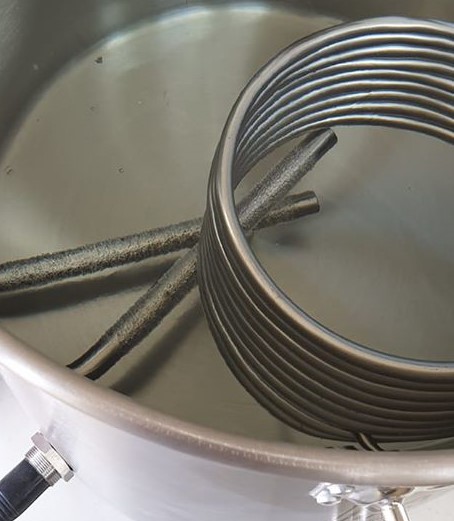
Professional Development can be Enjoyable: An example
We hear a lot about VET educators needing to undertake professional development. There is sometimes confusion about what that means and what needs to be done. Maybe you read something to do with education. Great! But what did you learn from it? How did you apply that to your educational practice? If you didn’t take anything from it or do anything with it, then it is not really professional development.
Sounds boring / gruelling / tiresome and other similar adjectives but it doesn’t have to be. You can participate in professional development that is enjoyable. Here is an example of doing just that.
Let’s get a disclaimer out of the way first, and then dive into it: I am not promoting or recommending drinking alcohol. You probably shouldn’t since there are lots of potentially negative health risks.
It began with a goal
Okay, okay… it began with talking with friends about how they brew their own beer and they thought I should give it a go too. But then I thought, “Hey, I could use this as a learning experience AND for professional development.” (or justification to brew beer!)
I could apply “meta learning” in which I think about how I am learning as I am learning. As I go about making delicious beer, I could implement my knowledge of Social Constructivism into the process. Not only would that enhance my understanding of how I learn best, but from a VET practitioner’s point of view, inform how I apply it to designing learning activities for others.
- Specific – Develop my understanding of Social Constructivism learning theory by learning how to brew beer.
- Measurable – Self-reflection about what I learnt and how I could apply this in my role as a Trainer in the future
- Achievable – Equipped with knowledge and experience in implementing learning theories means I can apply it to myself
- Relevant – The professional development activity relates to how the experience can be used to implement learning theories in my training as a VET educator
- Timely – The activity will take three months from November 2019 and conclude in January 2020
And then a plan
Coming up with a plan followed a logical progression: research, do, test, reflect, and do again.
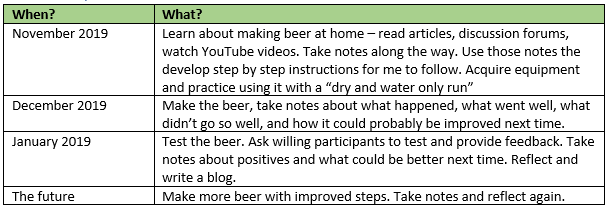
Then defining learning objectives to be achieved
If you look at this and think it looks a bit like Performance Criteria, then you would be right.
It is simple enough, but really, the process forms the basis of effective learning practice and, upon deeper investigation, incorporates may learning theories. Some are there ‘naturally’ and some I had to consciously implement.
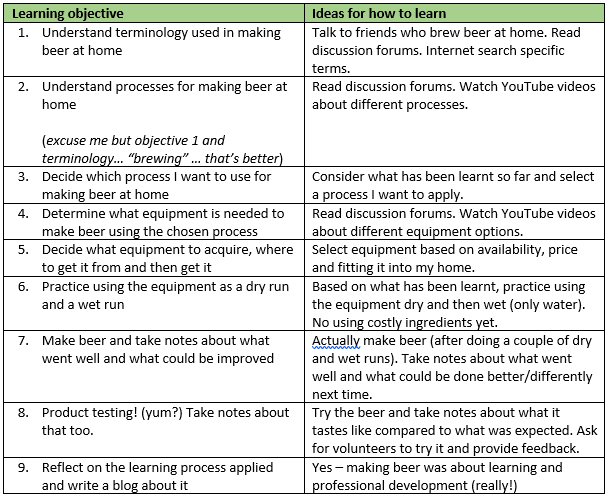
Some photos of the learning experience
We’ll use photos to tell the story of what happened. Leaving the boring bits out. There weren’t really many boring bits in the “doing it”.
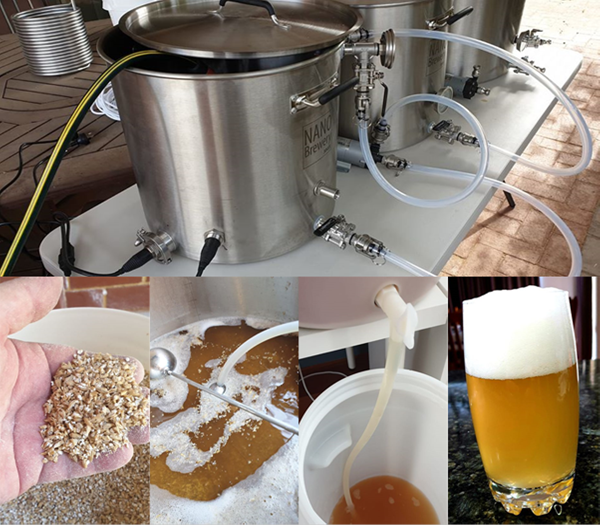
Wasn’t this supposed to be about learning theories?
Yes, I was getting to that. What did any of that have to do with learning theories and professional development?
Remember the idea was to use a learning experience to think about how Social Constructivism could be applied in my training as a VET educator.
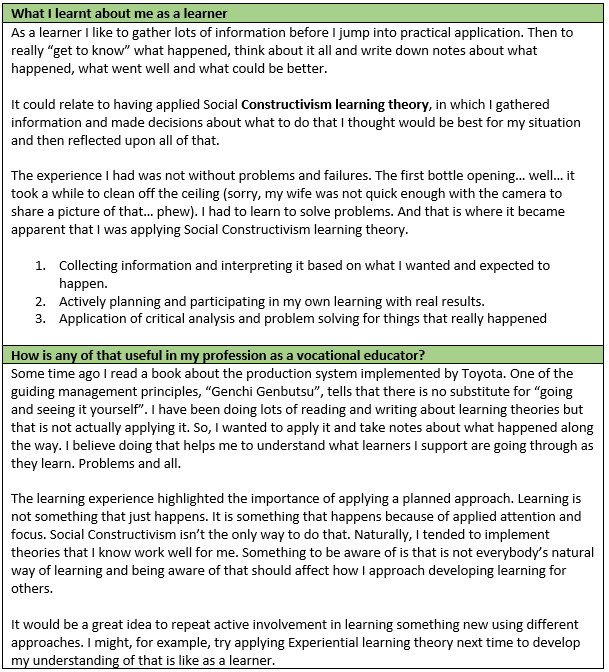
So… what did you stuff up during your “learning” experience?
The bloopers? Okay. In no particular order:
- The electric circuits in my house were not enough to make the beer and had to be changed (unexpected resource requirement)
- Gushing beer upon opening – don’t open them when they are warm or before they have “bottle conditioned” for long enough… or at least do it outside where it’s easier to clean up.
- Fermenters get heavy. Either slowly waddle like a duck while trying to carry it or, the better (re: safer) option is ask for help
- Unfermented wort tastes like sugary water because that’s what it is (spluttering coughing)
- Friends are very willing to assist with taste testing (is that actually a problem?)
- Leaks… they suck… fix them. Lost about 3 litres of goodness because of it.
- Don’t take a deep sniff to find out what hops smell like. First timer here. It smells great but my goodness it’s strong! (watery eyes).
What about the “learning and development bit”, what did you stuff up there?
Nothing, the beer tasted like beer. Oh, wait… learning. I think it was successful to “go and see it for myself” and I look forward to applying different learning theory to the next “thing” to learn. Any ideas for what that should be?